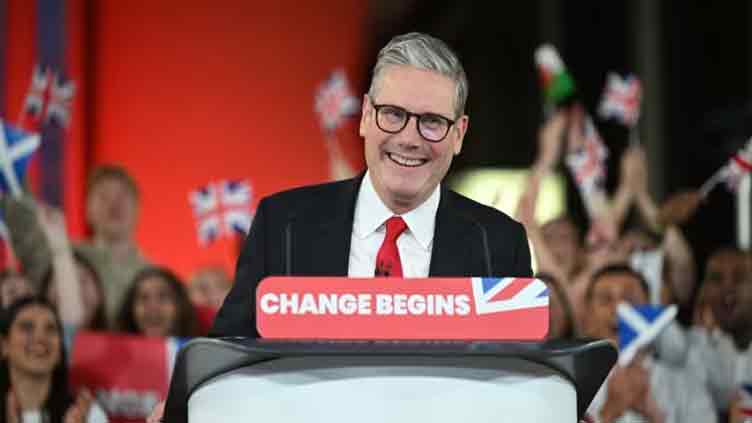UK election and the power of rhetoric

World
Starmer spoke of the need to “rediscover its (UK) identity” and “undergo a wider reset”
By Salman Khan
The UK election is arguably one of the biggest events in the world. It is marked by pomp and pageantry and truly considered a watershed moment which can make or break the future of one of the oldest democracies of the world.
The recent election in the UK and the smooth transition of power from one government to another encapsulate the true essence of the British parliamentary system.
The July 4 election was conducted in full media glare and people looked at it from various angles such as the triumph of democracy in a world spinning out of control, royal grandeur, freedom of expression, power of the vote, tradition and culture.
There was, however, a unique aspect of the election – the power of rhetoric. The contesting candidates, media and political analysts seemed to have given their imagination a free play and employed high-sounding cliches and superlatives to drive home their respective viewpoints.
One can find copious use of words and expressions such as rediscovery, reset, change, belief, defining moment etc., in the election campaigns and post-poll speeches.
New Prime Minister Keir Starmer’s address to his supporters and victory speech in particular were replete with rhetorical flourishes, reminding one of the power of expression former US president Barack Obama is known for.
Starmer spoke of the need to “rediscover its (UK) identity” and “undergo a wider reset.”
"It is surely clear to everyone that our country needs a bigger reset, a rediscovery of who we are, because no matter how fierce the storms of history, one of the greatest strengths of this nation has always been our ability to navigate a way to calmer waters," he told a cheering crowd after his party’s landslide victory in the election.
A visibly elated Starmer promised his countrymen, “My government will fight every day until you believe again. From now on, you have a government unburdened by doctrine, guided only by the determination to serve your interest. To defy those quietly those who have written our country off."
"You have given us a clear mandate, And we will use it to deliver change."
“Change begins now,” he also said in the victory speech.
Conceding his defeat in his farewell speech, Rishi Sunak declared the election outcome a “sobering verdict”.
“I have heard your anger, your disappointment, and I take responsibility for this loss,” Sunak told the Conservative candidates and campaigners.
Starmer, on the other hand, made a slew of promises. “A mandate like this comes with a great responsibility,” he acknowledged in a speech to supporters, saying the fight to regain people’s trust after years of disillusionment “is the battle that defines our age.”
Speaking as dawn broke in London, he said Labour would offer “the sunlight of hope, pale at first but getting stronger through the day.”
A political analyst expressed a similar sentiment by expressing his optimism in these words. “I just see this as the potential for a seismic shift, and that’s what I’m hoping for.”
Anand Menon, professor of European Politics and Foreign Affairs at King’s College London, said the British voters were about to see a marked change in political atmosphere from the tumultuous “politics as pantomime” of the last few years.
Rising poverty, crumbling infrastructure and overstretched National Health Service have led to gripes about “Broken Britain,” he said.
“My government will make you believe again,” Starmer said as supporters cheered him on outside 10 Downing St.
“The work for change begins immediately,” he said. “We will rebuild Britain. …. Brick by brick we will rebuild the infrastructure of opportunity.”
As for the supremacy of king in the British scheme of things, a writer described it as “a moment of pageantry which typifies the role of the monarchy in modern Britain.”


